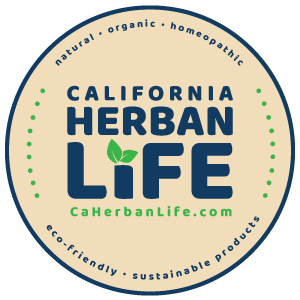What does iron do?
Iron’s job in the body is all about oxygen delivery. It is an essential component of hemoglobin, the molecule in our red blood cells that is responsible for carrying oxygen from the lungs to the rest of our body and then taking carbon dioxide back for removal. It is also involved in DNA synthesis and energy production.
Anemia is a condition caused by a lack of hemoglobin or red blood cells. This is usually due to low iron when it is called iron deficiency anemia. Sometimes it can also be caused by low Vitamin B12. Anemia doesn’t happen until the iron has been extremely depleted, or been low for a long time. You can have symptoms of iron deficiency without having anemia. The symptoms all relate to the lack of oxygen in the tissues and a build-up of carbon dioxide. Nothing works very well without oxygen!
Why is Iron important?
A trace element in the body, iron is involved in the function of the immune system, but its most critical role is in getting oxygen to your muscles. So iron is needed for the body’s metabolism and oxygen transport system to function properly – and this is especially important in physical activity. However, iron deficiency is common – according to the World Health Organization, it’s the most widespread nutritional disorder in the world, affecting people in the industrial world as well as developing countries.
Iron deficiency symptoms
Fatigue, lethargy, tiredness, lack of energy
Frequent or recurrent infections, low immune function
Pale skin
Poor circulation, coldness
Dizziness or lightheadedness
Shortness of Breath, especially after walking/exercise
Anxiety
Depression
Unusual cravings (eg. eating dirt or chalk or ice, this is called pica)
Restless Leg Syndrome
Dry/flakey skin or scalp
Hair loss
Nail changes
Heart palpitations, angina
Headaches
Heavy periods
Difficulty concentrating or learning

Who is at risk of low iron?
The three main categories of those who become low in iron are those who aren’t getting enough in their diet, those who are losing too much, and those who simply can’t absorb what they do ingest. The other special category is those who simply need more, either because they are growing (children & teenagers), or because they are making more blood, and more hemoglobin, i.e. pregnant women!
Low iron is one of the most prevalent nutritional deficiencies worldwide. In New Zealand, it is estimated that a quarter of children under 3 have low iron, and 7% of women (compared to 1% of men).
Women with long or heavy periods
Anyone with chronic digestive upsets
Gastrointestinal inflammation
Certain medical conditions (eg. Coeliac disease, hemorrhoids, gastric ulcers)
Vegans and vegetarians
Those on some medications (eg. omeprazole/losec, aspirin, anti-inflammatories)
Children, especially preschool children
Restricted diets
Pregnant women
Food intolerances (eg, milk allergy reduces iron absorption)
Those who have suffered heavy blood loss for any reason
Teenagers
Poor nutrition
Elderly
What messes with iron absorption?
Fiber, zinc, oxalates, calcium, and tea can all reduce our ability to absorb iron. Fiber binds to iron and pulls it out of the body. Zinc and Calcium can compete for absorption. And tea contains tannins that bind with iron and reduce absorption. Various plant constituents like oxalates and phytates can also reduce absorption.
What helps iron absorption?
Vitamin C really helps iron absorption, so eating food rich in Vitamin C with iron-containing foods is a fabulous idea.
What about supplements?
There is a common awareness that some iron supplements can cause constipation. Unfortunately, this stops many women who really need iron from taking it. There are plenty of other forms of iron that don’t cause constipation or digestive discomfort, so it is worth exploring your options. Iron is often prescribed as ferrous sulfate, which is better absorbed when taken alongside vitamin C. This suits many people just fine but not everyone! Other more gentle and easily absorbed forms such as iron bisglycinate don’t need the vitamin C and are generally well tolerated. A little word here about Nettle teas. When prepared properly, a strong overnight infusion of organic nettle leaves, drunk the next morning, can be an excellent iron tonic.
The beauty of topping up your iron if you are low is that you will feel changes quickly, usually within a week. It can be astonishing when the clouds clear and you can feel your brain functioning, your energy flowing, and your vitality return!




